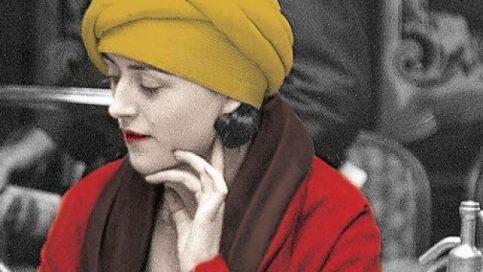Lucia Joyce was the daughter of James Joyce – ill-fated indeed to live in the shadow of such genius. Beloved yet unseen, in the manner of so many women, her own enormous talent and creative drive were subsumed in her father’s.
Her tragic fate shadows this novel, dogging the reader with sad inevitability. I’m not giving anything away; whatever hope we hold for Lucia is extinguished on the very first page as she stands on the deck of a Swiss ferry amid a chill, autumn landscape – “a shiver in the air and a thin odour of decay” drifting across the lake. It’s 1934, and she’s on her way to visit the psychiatrist Carl Jung. And so the substance of the novel is a looking-back, Lucia’s telling of her own sad story.
She begins near her peak, in 1928, in Paris: she is becoming famous as a dancer. Reviewed in the Paris Times, she is acclaimed as “her father’s daughter… James Joyce may yet be known as his daughter’s father.”

Shortly after this, Lucia meets Samuel Beckett, yet to attain fame as one of the leading playwrights of the twentieth century. Her love for him is instant, and Abbs’ beautiful storytelling transmits it well – the weird, intoxicating cocktail of personal fantasy, familiarity, mystery. Alas, we also intuitively sense the doom inherent in loving this man who is in thrall to Lucia’s father.
Abbs has done an enormous amount of research – she is a Joyce-ologist, familiar not only with the complexities ofFinnegan’s Wake and Ulysses, but many other cultural figures of that incredible creative moment – Zelda Fitzgerald, Alex Calder, Margaret Morris – just before the clock’s hands moved on and Nazism swept in to destroy everything. Here is Paris in the 1920s –bars, excitement, clothes, rules being broken and new ways of living unfolding. Yet in the pincer of old and new, poor Lucia is caught.
Heartbreak on heartbreak. Physically tough and utterly driven, yet psychologically and emotionally fragile, Lucia can never escape her family. Abbs’ graceful storytelling and acute understanding of her subject draws us on, and a grim revelation waits at novel’s end.
Margie Thomson

You must be logged in to post a comment Login